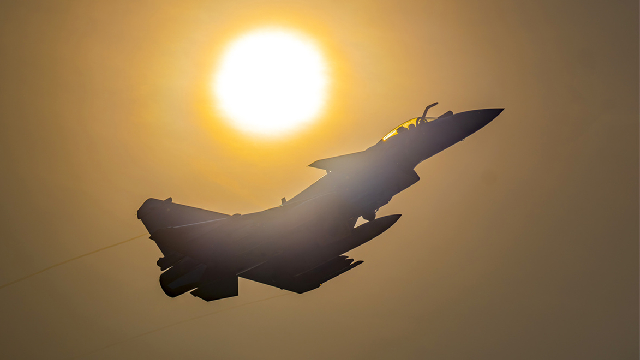An American secret military program coded “127e” has recently come to the fore. American news website The Intercept revealed that between 2017 and 2020, US commandos conducted at least 23 separate 127e programs across the world, at least 14 of which were in the greater Middle East and the Asia-Pacific region. These programs relied on foreign and irregular partner forces to carry out the so-called counterterrorism operations against America’s enemies, while the US armed, trained, and provided intelligence to those forces.
Fostering pro-America forces, meddling in regional conflicts, attacking strategic rivals and anti-US countries – these are the usual tricks employed by the US to maintain its hegemony.
According to the latest documents obtained by The Intercept website and revelations from former Pentagon senior officials, the US over the years has waged proxy wars through the secret “127e” program in many countries, including Niger, Cameroon, Egypt, Lebanon, Syria, Yemen, Iraq, and Tunisia. Many 127e programs were still active in the greater Middle East and the Asia-Pacific region as recently as 2020.
Washington’s addiction to proxy wars showed itself during the Cold War and got worse after the 9/11attacks. Secret military programs such as “127e” were spawned in this period as the US rampantly promoted the proxy strategy in the Middle East, West Asia, Africa and other regions. Even today, the US, clinging to the Cold War mindset, is still thinking of fighting a proxy war against Russia.
According to Zhou Fangyin, head of the School of International Relations, Guangdong University of Foreign Studies, through decades of practice, the US has developed a system of waging proxy wars. It makes use of major-country competition, regional frictions and ethnic or religious conflicts, provides weapons, intelligence, training and funds, and supports specific countries, opposition parties and mercenaries, all to achieve its own strategic goals. At the same time, the US is good at launching publicity campaigns to dress up its proxies as the “force of justice” and its meddling in foreign countries’ internal affairs and regional disputes as “just operations preserving world order”.
Jiang Tianjiao, associate professor at the Fudan Development Institute, pointed out that compared with directly sending troops, proxy war is more secretive and lacks necessary supervision and restraint, because, not authorized through international law, it usually falls in a grey zone. “The US adopts a relatively indirect approach of infiltration. It fosters proxies or assigns special operation forces or mercenaries to conduct secret military operations. It’s adept at taking advantage of loopholes in international rules, which is its traditional opportunistic approach as far as foreign relation is concerned,” he said.
Another reason why the US is so interested in proxy war is that it can help maintain American hegemony at a low cost. In 1955, the then US President Eisenhower called proxy war “the cheapest insurance in the world”.
According to Zhou, on the international level, the US waged proxy wars to strain its rivals, reduce its military risks and warfare expenditure, seize influence and strengthen control over specific regions, and make other countries more dependent on it for security. Domestically, proxy wars can in a way assuage the anti-war sentiments at home, mitigate resistance from the opposition party, and leave leeway for policy maneuvering. “Always putting its own interests first, the US adjusts its strategic movement according to how the situation changes. If the proxy war goes well, it would provide more support; if anything goes against itself, it would back out any minute. America’s hurried withdrawal from Afghanistan is a perfect case in point.”
America’s waging of proxy wars and interference in other countries’ affairs have created incessant security crises and humanitarian disasters. Zhou said, “The US has come to believe that conflict is a good thing for it because it makes other countries feel more clearly the value of its military superiority. Therefore, Washington would take the initiative to make trouble from time to time to realize its own interests. Meanwhile, it is so eager to wage proxy wars because that way it is able to contain and suppress its rivals at a relatively small price.”
Editor’s note: This article is originally published on news.cn, and is translated from Chinese into English and edited by the China Military Online. The information, ideas or opinions appearing in this article do not necessarily reflect the views of eng.chinamil.com.cn.









